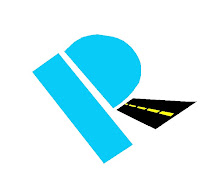As Zen and The Art of Motorcycle Maintenance author, Robert M. Pirsig, might put it, I've fallen into a gumption trap. I don't feel prepared to write anything inspirational because I have been going through quite a few ups and downs in my spiritual life. But I also don't feel that it would be appropriate to write anything too depressing on this blog. What started off as a cry for a revolution has reached a plateau of bland nothingness.I suppose, however, that I should take a word or two of my own advice and "fake it until I make it." I recently came across an amazing blog, www.hasidic-feminist.blogspot.com (for anyone who is interested) about a woman who left the Kiryas Yoel Satmar community. Her story is amazing, but more than that, the way she presents everything is truly beautiful. Though the Torah forbids it, I must admit that I am a bit jealous of her writing skills. In any case, she recently brought up an interesting point, and one that I've been pondering for quite a while as it is: if one stops believing, then how does one get through pain or other various struggles in life? Yiddishkeit is very clear on how to approach all things in life, but especially pain and suffering. It is one of the things that makes classic Judaism incredibly appealing to me, who has Baruch Hashem not had to deal with that much suffering, but has had bouts of depression that were very hard to get over. Even before I became frum, tefila has been very important to me. I didn't always believe in G-d, or at least an Abrahamic G-d. I had ideas about a god who was far away, or at least not at all interested in our affairs. Or a god who was in nature, the grass, the trees. Then there was a period of time when I was considering xtianity (B"H I got over that shtus early on!) But no matter my view of G-d, I always felt I had to speak to Him. In hate, in love, in confusion, in pain, in joy, words to G-d were words to heal. Perhaps it was just words to myself, but I believe that too was a form of prayer. Words to say that even if there was nothing else out there, I existed, and I had power, and that I would not let anything tear me down. Now those words are repeated thrice daily, morning afternoon and night, reminding me who I am, where I stand, and providing a never-ending source of comfort. I truly do believe that davening, no matter your or anyone else's view on it, is the best form of therapy available. Honestly. People pay hundreds if not thousands to be able to talk to someone. We as Jews, as humans, as creatures, get that for free - if only we would open out mouths.
Hashem, sefosei tiftach, ufi yagid tehilosecha!
Peace!
Rochie

